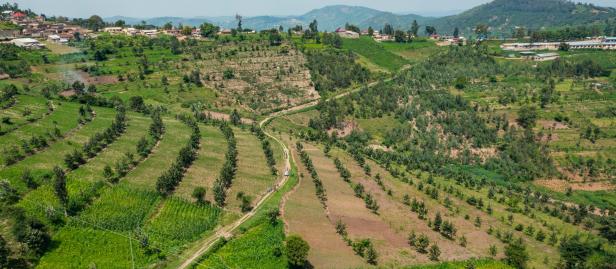UNDP Annual Report 2006
UNDP Annual Report 2006
January 19, 2022
The United Nations Development Programme (UNDP) Rwanda Country Cooperation Framework (CCF) 2002-2006 hinges on two strategic objectives: promotion and con- solidation of good governance and economic management for poverty eradication, within the context of Rwanda’s transition from emergency response to long-term sustainable development. These objectives will be supported by cross-cutting issues of gender, HIV/ AIDS, environment protection and the promotion of science and technology, particularly information and communication technologies (ICT). This approach is in accordance with the United Nations Development Assistance Framework (UNDAF) and is fully aligned with Rwanda’s own development strategies, as ref lected in its Vision 2020 and the Poverty Reduction Strategy Paper (PRSP).
In the year under review, being the concluding year for the CCF, it is time to take stock of progress made and lessons learnt in the past five years of supporting Rwanda on the route to recovery and development, in the aftermath of the devastation of the 1994 genocide. UNDP is committed to accompanying Rwanda in its development initiatives, keeping in mind the principles of new aid modalities: ownership, alignment with the country’s priori- ties, harmonisation, managing for results, and mutual accountability.
Rwanda’s long-term development challenges include the need to consolidate achievements in good governance in all sectors; entrench the rule of law, justice, unity and reconciliation of Rwandans; plan for growth and poverty eradication; maintain macro-economic stabil- ity; and develop the necessary capacity to deliver on the set development agenda. More specifically, the country faces constraints related to the high rates of population growth; the limited availability and affordability of energy; as well as limited capacity, particularly in the areas of science and technology and research. In spite of the government’s determined efforts and clear vision, development indicators remain low, due to the devastation of the genocide and its impact on the economic and social fabric of the nation.
In the past few years, however, Rwanda has registered commendable progress in major areas of development. Considerable progress has been made in the sector of governance, rule of law and reconciliation. The country is to be commended for being one of the first three countries to complete the African Peer Review Mechanism (APRM) and to main- stream the APRM plan of action into the Economic Development and Poverty Reduction Strategy (EDPRS), now under preparation. The ongoing decentralisation programme and public sector reform will provide a strong framework for the delivery of quality services to the citizens, and will open the way for people’s full participation in their own governance, development planning and implementation.
During the year under review, there has been an unprecedented intensity of activities by the Government of Rwanda (GoR) to consolidate achievements in good governance and economic management for poverty eradication.

 Locations
Locations




